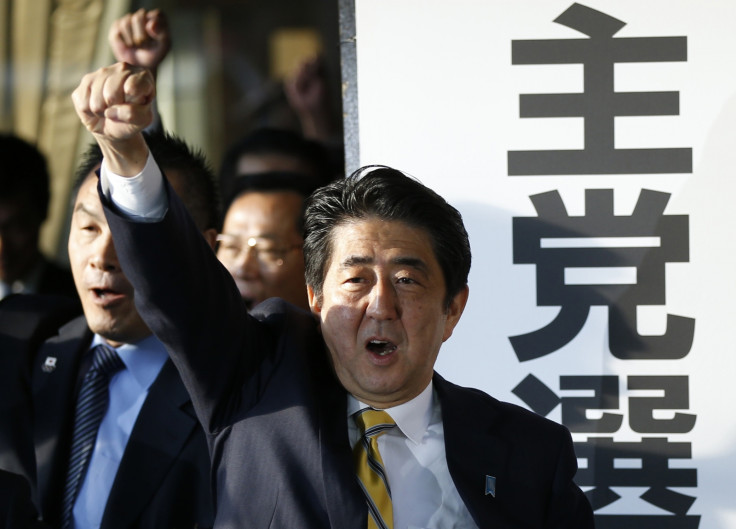Shinzo Abe Dissolves Japan Parliament Seeking Fresh Mandate for 'Abenomics'

Japanese Prime Minister Shinzo Abe has dissolved the lower house of parliament seeking a fresh mandate for his economic reforms.
The snap polls in December will test Abe's struggling economic policies, often dubbed as 'Abenomics', in the wake of worrying signs for the Japanese economy.
Speaker of the Lower House Bunmei Ibuki read the statement to dissolve the parliament during the plenary session today, 21 November. The cabinet will also ratify the decision to hold a general election on 14 December, following a 12-day campaigning period.
Abe is dissolving the parliament just mid-way through his four-year term.
"The battle is now starting. We'll make an all-out fight in this battle so that we all can come back here to resume our responsibility to make Japan a country that shines in the centre of the world," Abe said following the dissolution.
"Are our policies a mistake, or are they correct? Is there really any other way? Let us all win together."
However, opinion polls held by local media outlets suggest that many Japanese are unclear why the prime minister is calling for another general election with more than two years of his term still left.
Abe is expected to drum up public support for his economic reforms - hyper-easy monetary policy combined with government spending and reforms – to revive the Japanese economy during the election campaign.
Despite the falling ratings and popularity, the Abe-led Liberal Democratic Party (LDP) is expected to secure a majority in the snap election at the 475-seat chamber owing to the fractured opposition.
The number of Lower House seats has been revised from 480 to 475 to correct the regional disparities in terms of voter representation.
© Copyright IBTimes 2025. All rights reserved.






















